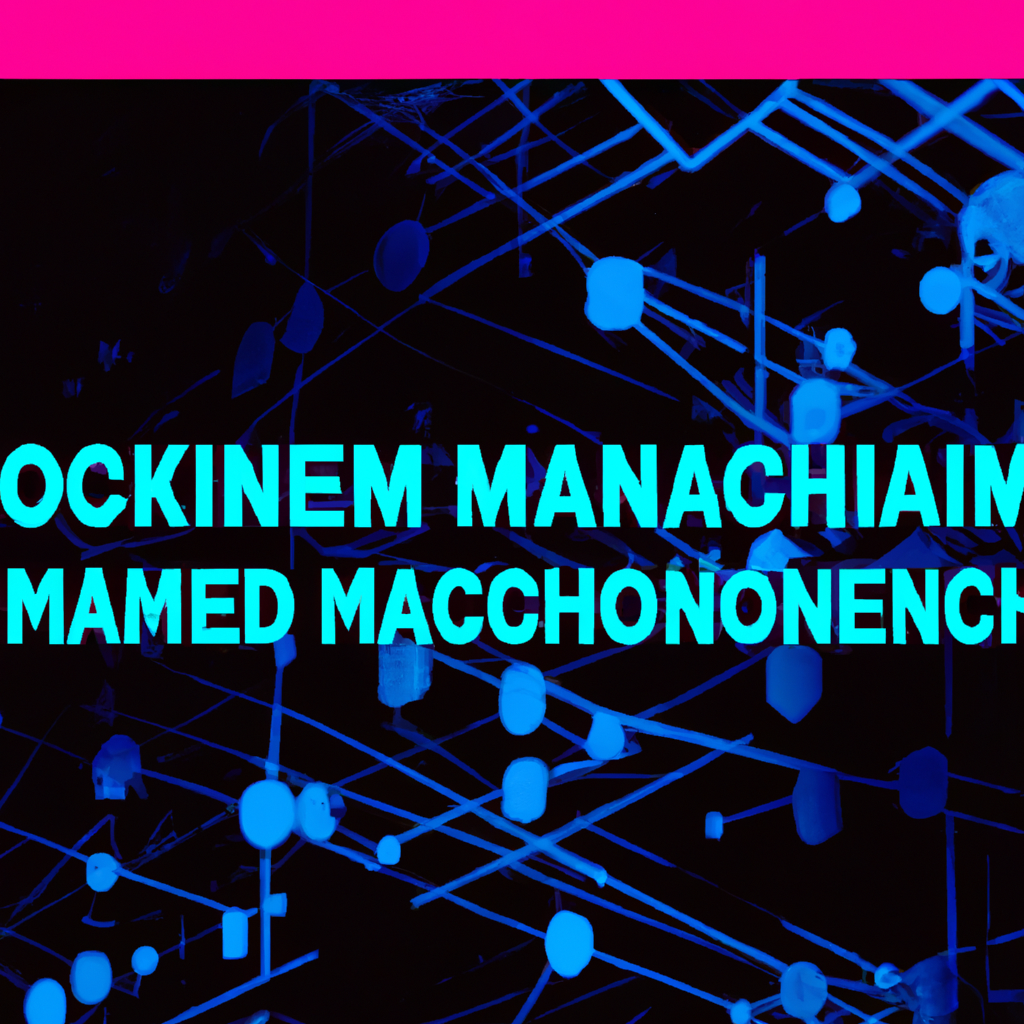Exploring the Potential of Blockchain Technology in Supply Chain Management.
Table of Contents
Exploring the Potential of Blockchain Technology in Supply Chain Management
# Introduction
In recent years, blockchain technology has gained significant attention across various industries due to its potential to revolutionize traditional systems and processes. One area where blockchain technology holds immense promise is supply chain management. With its inherent characteristics of transparency, security, and decentralization, blockchain has the potential to address the long-standing challenges and inefficiencies in supply chains. This article aims to explore the potential of blockchain technology in supply chain management, focusing on its benefits, challenges, and future prospects.
# Blockchain Technology: An Overview
Before delving into the potential of blockchain technology in supply chain management, it is essential to understand the foundational concepts of blockchain. At its core, blockchain is a distributed ledger technology that enables the secure and transparent recording of transactions across multiple nodes in a network. The key principles that underpin blockchain technology include decentralization, immutability, consensus mechanisms, and cryptographic techniques.
# Benefits of Blockchain Technology in Supply Chain Management
Enhanced Transparency: One of the primary challenges in supply chain management is the lack of transparency and traceability. Blockchain technology can provide a transparent and immutable record of all transactions and movements within the supply chain. This transparency enables stakeholders to track and verify the origin, authenticity, and movement of goods, fostering trust and accountability.
Improved Security: Traditional supply chains are vulnerable to fraud, counterfeit products, and data breaches. Blockchain technology can enhance security by utilizing cryptographic techniques to ensure the integrity and confidentiality of supply chain data. With blockchain, each transaction is securely recorded and validated, minimizing the risk of tampering or unauthorized access.
Streamlined Processes: Supply chains involve numerous intermediaries, paperwork, and manual processes, leading to inefficiencies and delays. By leveraging blockchain technology, supply chain management can be streamlined through the automation of processes, smart contracts, and real-time visibility. These features enable faster, more accurate, and cost-effective supply chain operations.
Enhanced Trust and Collaboration: Trust is a crucial element in supply chain relationships. Blockchain technology facilitates trust and collaboration by eliminating the need for intermediaries and creating a decentralized network where all participants have access to the same information. This shared ledger fosters transparency and equal participation, reducing disputes and facilitating efficient collaboration among stakeholders.
Supply Chain Traceability: With the increasing demand for sustainability and ethical sourcing, supply chain traceability has become a critical requirement. Blockchain technology can enable end-to-end traceability by recording every transaction and movement of goods on the blockchain. This traceability empowers consumers and regulators to verify the authenticity, quality, and ethical practices associated with products, promoting responsible supply chain practices.
# Challenges and Limitations
While blockchain technology holds immense potential in supply chain management, several challenges and limitations need to be addressed.
Scalability: Scalability remains a significant concern for blockchain technology, particularly in supply chains that involve a vast number of transactions and participants. The current blockchain infrastructure may struggle to handle the volume of data generated by supply chain operations. However, ongoing research and development efforts are focused on improving scalability through techniques like sharding and off-chain transactions.
Standardization: The lack of standardized protocols and frameworks for integrating blockchain into existing supply chains poses a challenge. Different organizations may use incompatible blockchain platforms or data structures, hindering seamless interoperability. Developing industry-wide standards and protocols is crucial to ensure the widespread adoption and integration of blockchain technology in supply chains.
Data Privacy and Confidentiality: While blockchain provides data integrity and security, it poses challenges regarding data privacy and confidentiality. Supply chain data may contain sensitive information, such as pricing, customer details, or trade secrets. Balancing the need for transparency with data privacy and confidentiality requires careful consideration and the implementation of appropriate access control mechanisms.
Integration with Existing Systems: Most organizations have well-established supply chain management systems that may not be easily compatible with blockchain technology. Integrating blockchain into existing systems and processes requires careful planning, investments in infrastructure, and change management. Organizations need to assess the cost-effectiveness and feasibility of blockchain integration before implementation.
# Future Prospects and Conclusion
Despite the challenges, the potential of blockchain technology in supply chain management is vast. As technology continues to evolve, solutions to scalability, standardization, and privacy concerns are likely to emerge. The integration of emerging technologies like Internet of Things (IoT) and Artificial Intelligence (AI) with blockchain can further enhance the capabilities of supply chain management systems.
In conclusion, blockchain technology has the potential to transform supply chain management by providing enhanced transparency, security, and efficiency. The benefits of blockchain technology include improved traceability, streamlined processes, and enhanced trust among stakeholders. However, challenges related to scalability, standardization, and data privacy need to be addressed for widespread adoption. As organizations explore the potential of blockchain technology in supply chain management, collaboration, research, and innovation will play crucial roles in unlocking its full potential.
# Conclusion
That its folks! Thank you for following up until here, and if you have any question or just want to chat, send me a message on GitHub of this project or an email. Am I doing it right?
https://github.com/lbenicio.github.io

